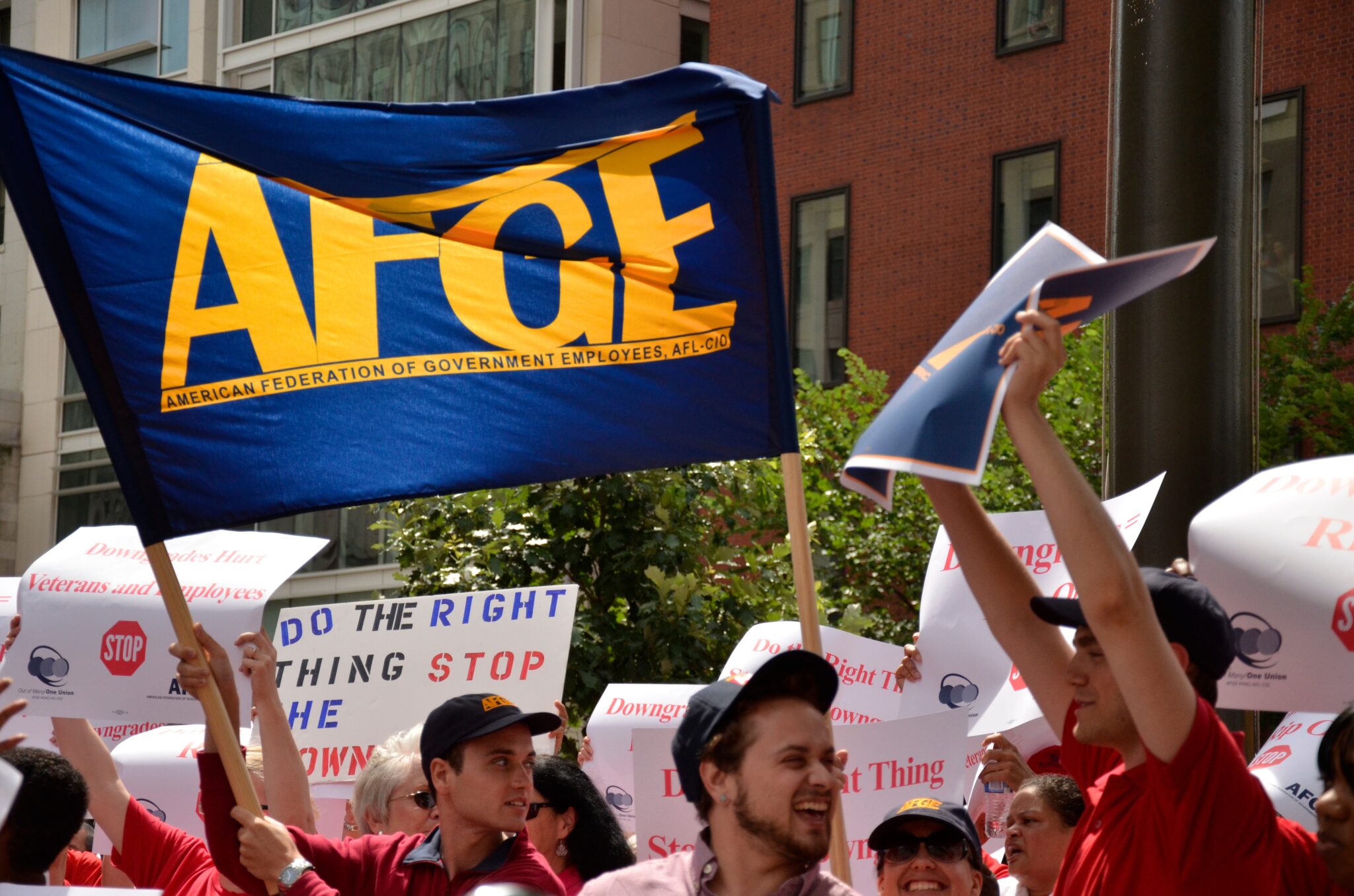
Finlay Adamson is a student at Harvard Law School.
In today’s news and commentary, a US District Court orders the Trump Administration to provide its plans for firing federal workers; the Massachusetts Legislature considers multiple labor bills; and waste-collection workers at Republic Services strike throughout the nation.
On Friday, US District Judge Susan Illston ordered the Trump Administration to provide copies of its plans to fire federal workers for review. Judge Illston, the Senior Judge of the District Court for the Northern District of California, did not require the Administration to release its Agency Reduction in Force and Reorganization Plans (ARRPs) publicly, but instead provide them for in camera review by the court and plaintiff’s counsel. Plaintiffs in the case include the American Federation of Government Employees (AFGE) and the American Federation of State, County and Municipal Employees (AFSCME), as well as non-profits, cities, and counties throughout the nation. The Trump Administration resisted the release of ARRPs on the grounds of deliberative process privilege, arguing that the documents are part of a policy-making process and it would be premature to disclose them. However, Judge Illston found that “the need for accurate fact-finding in this litigation overrides any interest in non-disclosure.” Earlier this month, the Supreme Court lifted Judge Illston’s injunction on the Administration’s reduction-in-force plans.
Earlier this week, the Massachusetts Legislature held a hearing on legislation that would affect the labor rights of public and private employees in the Commonwealth. Particularly of note is the Protect Labor Act, which would automatically grant the Massachusetts Commonwealth Employment Relations Board jurisdiction over “any employer, employees, trade or industry… (that) falls outside the jurisdiction of the NLRA”, or where the Board declines jurisdiction. At the hearing, members of the Joint Committee on Labor and Workforce Development asked Massachusetts AFL-CIO President Chrissy Lynch questions regarding federal preemption and how the Trump Administration’s attacks on labor rights are affecting Massachusetts workers. The Protect Labor Act is one of several proposed state laws (see California and New York) that would expand the jurisdiction of state labor agencies. As Ben writes, the lack of an NLRB quorum provides a rationale for states to challenge federal Garmon preemption. The Massachusetts Legislature also discussed a bill securing public employees (excluding “public safety employees”) the right to legally strike. Last year, public school teachers in Beverly, Gloucester, and Marblehead went on strike during contract negotiations, with teachers’ unions fined up to $50,000 per day they remained striking.
Stalled contract negotiations between the Teamsters and Republic Services are resulting in strikes by waste collection workers throughout the nation. Over 2,000 Republic Services workers in Washington State, California, and Ohio are either currently on strike, or have recently resolved strikes, in the last two weeks. Republic Services is the second-largest waste-management company in the US; the Teamsters cite the company’s union-busting tactics and refusal to bargain in good faith as motivating the strike. Of particular note are the workers striking at the Carbon Limestone Landfill in Poland, Ohio. The Landfill is one of the largest landfills in the country and collects over 12 million pounds of trash from New York and New Jersey each day.






Daily News & Commentary
Start your day with our roundup of the latest labor developments. See all
February 27
The Ninth Circuit allows Trump to dismantle certain government unions based on national security concerns; and the DOL set to focus enforcement on firms with “outsized market power.”
February 26
Workplace AI regulations proposed in Michigan; en banc D.C. Circuit hears oral argument in CFPB case; white police officers sue Philadelphia over DEI policy.
February 25
OSHA workplace inspections significantly drop in 2025; the Court denies a petition for certiorari to review a Minnesota law banning mandatory anti-union meetings at work; and the Court declines two petitions to determine whether Air Force service members should receive backpay as a result of religious challenges to the now-revoked COVID-19 vaccine mandate.
February 24
In today’s news and commentary, the NLRB uses the Obama-era Browning-Ferris standard, a fired National Park ranger sues the Department of Interior and the National Park Service, the NLRB closes out Amazon’s labor dispute on Staten Island, and OIRA signals changes to the Biden-era independent contractor rule. The NLRB ruled that Browning-Ferris Industries jointly employed […]
February 23
In today’s news and commentary, the Trump administration proposes a rule limiting employment authorization for asylum seekers and Matt Bruenig introduces a new LLM tool analyzing employer rules under Stericycle. Law360 reports that the Trump administration proposed a rule on Friday that would change the employment authorization process for asylum seekers. Under the proposed rule, […]
February 22
A petition for certiorari in Bivens v. Zep, New York nurses end their historic six-week-strike, and Professor Block argues for just cause protections in New York City.